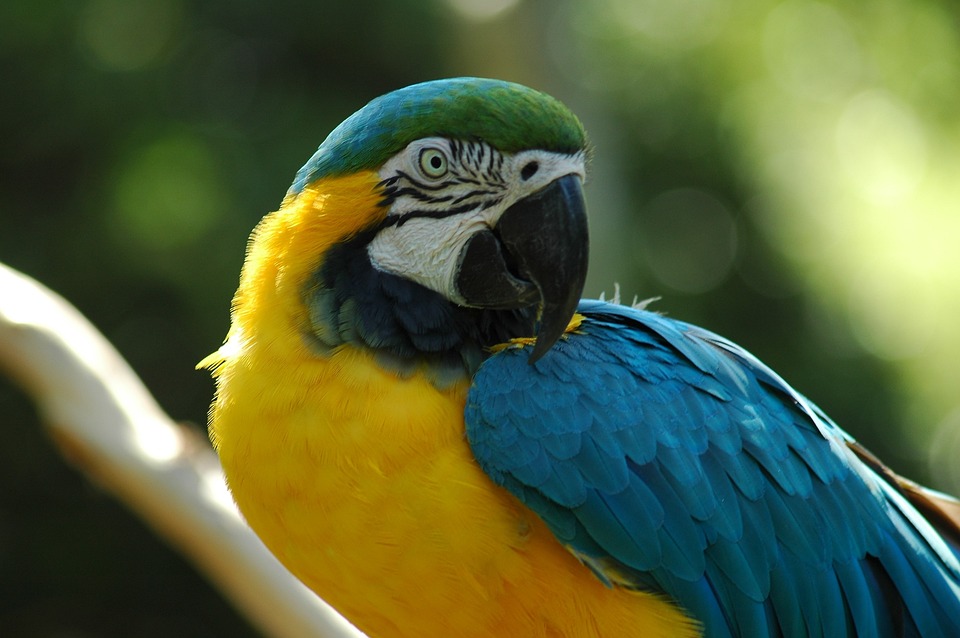Parrots are fascinating creatures known for their colorful feathers, intelligence, and unique behaviors. However, just like humans, parrots experience hormonal changes that can impact their behavior and interactions with their owners. Understanding and recognizing these signs of hormonal changes is crucial for providing the best care and ensuring a harmonious relationship with your feathered friend. In this article, we will explore the various indicators of hormonal changes in parrots and provide valuable insights on modifying interactions to accommodate these changes.
Signs of Hormonal Changes in Parrots
1. Increased vocalization: Hormonal changes often lead to an increase in vocalization in parrots. You may notice your bird becoming more chatty, vocalizing in different pitches, or even mimicking sounds more frequently.
2. Nesting behavior: Female parrots may exhibit nesting behaviors such as shredding paper, gathering materials, or attempting to create a nest. This behavior is often accompanied by increased territoriality and protectiveness.
3. Regurgitation: Parrots experiencing hormonal changes might engage in regurgitation behavior, where they bring up food and offer it to their owners or objects as a sign of affection and courtship.
4. Increased aggression: Hormonal changes can cause a surge in aggression, especially in male parrots. They may become more territorial, possessive, or even display aggressive behaviors like biting or lunging.
5. Fluffed feathers: Parrots may fluff their feathers as a way to appear larger and more intimidating during hormonal changes. This behavior is often accompanied by dilated pupils and a defensive stance.
6. Mating dances: Both male and female parrots may engage in mating dances during hormonal changes. This can include wing flapping, head bobbing, tail fanning, and vocalizations specific to courtship rituals.
Modifying Interactions to Accommodate Hormonal Changes
Recognizing signs of hormonal changes is only the first step; modifying your interactions accordingly is equally important. Here are some essential tips to help you navigate through this phase:
1. Limit physical contact: During hormonal changes, it is crucial to minimize physical contact, especially in sensitive areas like the back or under the wings. Avoid behaviors that can trigger sexual or aggressive responses.
2. Maintain a consistent routine: Parrots thrive on routine, and maintaining a consistent daily schedule can help alleviate hormonal behaviors. Ensure they have regular sleep patterns, meal times, and playtime to provide a sense of security.
3. Provide mental stimulation: Engage your parrot in mentally stimulating activities, such as puzzle toys, foraging toys, or training sessions. Mental enrichment can help redirect their hormonal energy into more positive outlets.
4. Avoid encouraging nesting behaviors: Discourage nesting behaviors by removing potential nesting materials, limiting dark and enclosed spaces, and redirecting their attention to interactive toys or games.
5. Consult an avian veterinarian: If you notice severe or prolonged hormonal behaviors, consult an avian veterinarian for guidance. They can provide further insights, offer hormonal treatments if necessary, or suggest behavioral modification techniques tailored to your parrot’s needs.
FAQs (Frequently Asked Questions)
1. Q: Are hormonal changes in parrots seasonal?
A: Yes, many parrot species experience hormonal changes during specific seasons, often triggered by changes in daylight hours and environmental factors.
2. Q: Can hormonal changes affect a parrot’s health?
A: Hormonal changes themselves are a natural part of a parrot’s life. However, prolonged or excessive hormonal behaviors can lead to physical or psychological health issues. Monitoring and managing these behaviors is essential.
3. Q: How long do hormonal changes typically last in parrots?
A: The duration of hormonal changes can vary between individuals and species. It can range from a few weeks to several months, depending on factors such as age, environment, and overall health.
4. Q: Can hormonal behaviors be completely eliminated?
A: While it may not be possible to completely eliminate hormonal behaviors, modifying interactions, providing proper care, and ensuring a healthy environment can help minimize their impact.
5. Q: Are there any dietary changes that can help mitigate hormonal behaviors?
A: A balanced and appropriate diet is essential for overall parrot health, but it is unlikely to directly alleviate hormonal behaviors. However, consulting an avian veterinarian can provide insights into specific dietary adjustments if needed.
Remember, understanding and accommodating your parrot’s hormonal changes is crucial for maintaining a healthy and fulfilling relationship. By recognizing the signs, modifying interactions, and seeking professional advice when necessary, you can provide the best care for your feathered companion.









